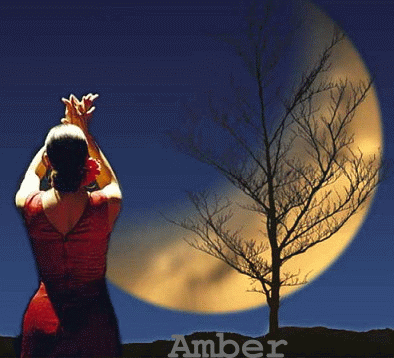shaby

Age: 125
Total Posts: 1287
Points: 0
Location:
United Kingdom, United Kingdom
Bollywood Charm Dominates Pakistanis To a Great Extent
By Azeem Haider , February 04th, 2004 - 0930 hrs IST
Before the partition of India and Pakistan in 1947, there was only one main film industry in the subcontinent, centralized in Bombay. All the aspiring actors, directors, writers etc. would venture to Bombay in the hope of making it big one day. But after the borders separated the united India in 1947, the Pakistani film Industry shifted to Lahore along with some renowned Muslim actors, directors and singers. Late Legendary Noor Jehan who is famously known as melody Queen in Pakistan also shifted to Lahore in 1947.
Thus both the film industries took a new shape and started churning out their own products. But do you think their products would have any sort of cultural and cinematic differences? Obviously not; because both were branches of one tree. So, it was very hard to differentiate between a Pakistani and an Indian movie.
The people of both the newly born states continued to watch movies from both parts of the subcontinent. At the time of Partition, when there were news of brutal massacre of both Hindus and Muslims from the Punjab quarter, a Noor Jehan and Dilip Kumar starrer movie was running with packed cinema houses all over India and Pakistan! Dilip Kumar (Yusuf Khan), who was born in Peshawar (NWFP province of Pakistan) and then moved to Bombay to give his acting flair a shot, decided to remain in Bombay rather than coming back to Pakistan. To the entertainment-starved people, it hardly made any difference whether it was a Pakistani production or the Bombay product. All they wanted was the entertainment that was duly provided by those movies.
Till late 1950s, the Indian movies were screened in Pakistan. Pakistani movies continued to resist the competition from Bombay and held their own place and both the productions did a roaring business in Pakistan. But as the volatile political situations could not allow this cultural exchange on a massive level, Indian movies were banned in Pakistan. People here in Pakistan missed the Indian Cinema with an inexplicable zest. Pakistani movies continued to have a much larger market shares, as their main competitors were not there anymore.
Many directors and writers took the advantage of this situation. They went all over to Afghanistan to watch the Indian movies and brought back with them the carbon copy of the story of the latest Bombay films. Then they reproduced those stories back in Pakistan in the shape of many hit movies!
The seventies saw a golden period of Pakistani Cinema not because of the copied ideas but because of the quality and original screenplays and some quality actors from both East (Now Bangladesh) and West Pakistan. But the VHS revolution that was gift from the Gulf countries (mainly UAE) took over the Pakistan by storm. People were madly interested in renting out the videocassettes of latest Indian movies and have them played at their homes. Now who wanted to go to cinemas when a much quality movie with almost the same elements that one associates with the subcontinent could be watched very easily at a fraction of cost? The 1980s is probably the worst period in Pakistani Cinematic history as movies from Lahore flopped miserably and the financiers almost lost their confidence in investing on Pakistani movies.
Today is a period of VCD, DVD and the Net. The Indian movies continue to have a major chunk of their market share throughout Pakistan. Pakistani shops are full of pirated audio, video or DVDs of Indian movies. Almost 80% of the stock in the video shops is Indian. The rest is a collection of Hollywood flicks while the Pakistani music CDs are not allocated more than a single shelf on an average music stores and that too is the pop music. Whether it is a slum area of Orangi Town in Karachi or the elitist Clifton and Defence, huge and colorful Indian movie posters are on display outside the video shops, whenever a new movie is released attracting the potential customers.
The day a movie is released in India, the same day we receive the pirated VCD copy of the same movie here in Pakistan. But the quality of the VCD is not bad. One doesn't even have to rent out the movies as such because the very next we get to see the same movie being put up by the cable operator. When the cable operators were banned to play Indian movies and stop the broadcast of all the Indian channels, the operators were against the government's decision. They organized a massive campaign that followed a number of strikes. The reason was pretty much simple that the Indian channels and movies were the demand of the masses and without the Indian stuff on the cable; the operators started losing many subscribers.
Pakistani Cinema maybe very similar to that of India's but the quality of majority of Pakistani flicks is highly sub-standard as compared to their Indian counterparts. Story and scripts are being given a back seat while the producers try to attract people by cheap dance sequences and gory violence all that is really not acceptable by an average cine-goer. Current Pakistani movies, even on a theatrical release, have very insignificant collections.
Many critics and intellectuals are putting forward a school of thought that the ban on Indian movies to be screened in Pakistan should be lifted. This will not only create new sources of employment for those people who work for the cinemas etc but also it will spread the new chill winds of Indian competition among the local film industry. The quality of the Pakistani movies would surely increase otherwise they will loose the market battle to their Indian contemporaries.
If Indians bring their movies to the Pakistani cinemas, their already established market here would multiply their profits. Urmila Matondkar who came to Lahore said that she did every possible effort to have her latest movie Pinjar being screened in the Pakistani cinemas but was not successful. However, Pooja Bhatt was able to pull off the worldwide Premiere of her 'Paap' in Karachi. No wonder the show opened to a complete houseful board and the tickets were completely sold out two weeks ahead of the premiere! Similarly Pakistani Punjabi movies can find a huge market in East Punjab province of India.
International Pakistan rock band Junoon's Ali Azmat composed a song for Pooja Bhatt's Paap and Rahat Fateh Ali Khan, the inheritor of legacy of Nusrat Fateh Ali Khan, also composed another song for the same movie. Pakistan surely has a lot of talent and potential in music, script writing and technical depts. What it lacks is the suitable equipment and a reasonable budget, which is very essential if a movie of international standard is to be made. Rather than hiring equipment from abroad we can get the same equipment from India at a fraction of cost and can shoot our films in Indian places while Indian can discover the exotic northern areas of Pakistan. The collaboration between the Indian and Pakistani showbiz industry is the key need of the hour.
The gist is that despite the extremely volatile and sensitive political condition, the people of Pakistan want to remain under the spell of Indian Cinema. Whether they will be able to do it open or continue to remain in shadows that is a call that the powers that be have to take!
(Azeem Haider is a freelance Journalist for DAWN newspaper, the most widely circulated Daily in Pakistan.)
~Fragi~

Age: 43
8324 days old here
Total Posts: 64603
Points: 0
Location:
Neutral Zone,
okies.... tu cinema k ander aney mein kiya burayee hai .,,, ??
ager cable ya cdz per nahi rook saktey to cinema per ban ka kiya reason
 that's clear..u accept or not...what can I do?
that's clear..u accept or not...what can I do?